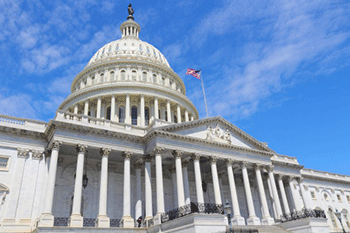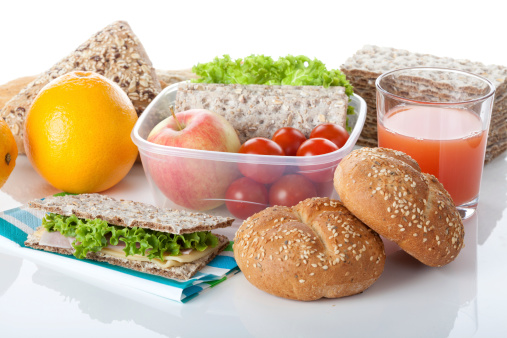 The Senate Agriculture Committee has finally introduced the Improving Child Nutrition Integrity and Access Act–better known as the Child Nutrition Reauthorization (CNR). This bipartisan compromise between Sen. Pat Roberts (R-KS) and Sen. Debbie Stabenow (D-MI) is far from perfect, but no bill ever is. It contains ideas that are both questionable and commendable when it comes to keeping children healthy and fed. Most importantly, it brings an end to years of ferocious public debates about child nutrition, health and hunger that have played out on the front pages of newspapers and the headlines of news broadcasts.
The Senate Agriculture Committee has finally introduced the Improving Child Nutrition Integrity and Access Act–better known as the Child Nutrition Reauthorization (CNR). This bipartisan compromise between Sen. Pat Roberts (R-KS) and Sen. Debbie Stabenow (D-MI) is far from perfect, but no bill ever is. It contains ideas that are both questionable and commendable when it comes to keeping children healthy and fed. Most importantly, it brings an end to years of ferocious public debates about child nutrition, health and hunger that have played out on the front pages of newspapers and the headlines of news broadcasts.
As the largest public provider of meals to low-income children outside of public schools, park and recreation agencies are an essential part of the anti-hunger safety net across the country. NRPA, and the 50,000 park and recreation professionals who have a stake in this bill, believes that any effort from Congress to stamp out hunger among low-income children must: (1) reduce the bureaucratic burden on park and recreation agencies, (2) provide kids with the healthiest meals possible, (3) support child health, and (4) increase the number of children we serve at our facilities. Based on these simple tenets, there’s still more work to be done on these fronts.
Below you will find the major points of the bill related to NRPA’s tenets:
Good for Park Kids
- By 2020, park and recreation agencies in thirteen states will be able to feed children after school and during the summer by completing one seamless application. Under current law, park and recreation agencies must file separate applications to serve meals after school and during the summer. This bureaucratic headache forces NRPA members to spend valuable time filling out duplicative applications for two separate agencies—often to feed the same kids—after school and during the summer. NRPA supports expanding this seamless application to all states—not just those with the lowest summer meal participation rates.

- In summer 2016, park and recreation agencies in six states will become eligible to serve a third meal each day. Under current law, park and recreation agencies can only serve a child two meals each day during the summer months. For hungry children, who may spend more than eight hours in our care during the summer, two meals is hardly enough nutrition to get through the day. Serving a third meal supports our work to close the summer hunger gap, saves valuable program dollars that NRPA members currently spend on food, and gives kids access to an additional healthy meal. NRPA supports expanding this pilot program to all states.
- The bill maintains the daily fruit and vegetable requirements from the previous Child Nutrition Reauthorization. The 2010 Child Nutrition Reauthorization supported good nutrition by increasing the variety and amount of fruits and vegetables kids eat each day. This bill builds on the success of that effort and expands access to local, farm-grown food. Promoting access to fruits and vegetables gives American kids a chance to succeed in the classroom, develop good eating habits at a young age, and provides a foundation for healthier lifestyles. NRPA supports any effort to increase fruit and vegetable consumption among children.
Bad for Park Kids
- The bill ratchets up the verification requirements on low-income kids applying for school meals. By tripling the number of school meal applications that must be verified, more low-income children may be denied access to essential meals during the school day due to language barriers, confusion, nonresponse, or human error. The meals park and recreation agencies serve to children after school and during the summer complement those served in school cafeterias. This provision may save money in the short-term, but it could cost dearly in the long-term, resulting in more children walking into our doors with rumbling stomachs after school. NRPA opposes this verification increase.
 The bill reduces the amount of whole grains kids will consume. The 2010 Child Nutrition Reauthorization required children to be served 100 percent whole grain rich foods in the meals they eat each day. This bill lowers the whole grain rich threshold to 80 percent. NRPA is deeply supportive of the nutrition standards implemented by the previous Child Nutrition Reauthorization. Making meals as nutritious as possible complements the work park and recreation professionals do to keep kids healthy, lower childhood obesity rates, and teach good eating habits. NRPA opposes this reduction.
The bill reduces the amount of whole grains kids will consume. The 2010 Child Nutrition Reauthorization required children to be served 100 percent whole grain rich foods in the meals they eat each day. This bill lowers the whole grain rich threshold to 80 percent. NRPA is deeply supportive of the nutrition standards implemented by the previous Child Nutrition Reauthorization. Making meals as nutritious as possible complements the work park and recreation professionals do to keep kids healthy, lower childhood obesity rates, and teach good eating habits. NRPA opposes this reduction.
- The bill delays a scheduled reduction in the amount of sodium kids will consume. The previous Child Nutrition Reauthorization gradually decreased the amount of salt allowed in meals served to children. The next reduction is scheduled for 2017, but this bill moves that deadline back to 2019. Consuming excess sodium is linked with the increase in high blood pressure and heart disease in American children. By delaying the 2017 reduction, this bill slows our efforts to prevent heart disease among children—especially those who are overweight. NRPA supports healthier eating habits and more physical activity for all Americans, including the low-income children we feed after school and during the summer. NRPA opposes this delay.
Questionable for Park Kids
- By summer 2018, families in certain states with limited access to summer meals can purchase food with summer EBT cards. Summer EBT cards will only be provided in high-poverty rural areas and exurban areas with limited access to summer meals. States must create plans that tell the USDA how summer EBT programs will work and how eligible areas will be chosen. NRPA is concerned that this provision could result in additional administrative headaches for our members to prevent participating families from receiving a summer EBT card and eating meals at a park and recreation site. Additionally, it may result in more children losing access to structured activities and exercise at park and recreation facilities during the summer months.
- In 2017, children can eat meals off-site if they live in rural areas or areas where more than 80 percent of kids are low-income. Current law requires all meals to be eaten at a site (park, pool, recreation center, etc.). This provision would allow for a grab-and-go model or allow meals to be delivered to a certain place where kids could eat them. States must create plans that tell USDA how and where off-site meal programs would operate. NRPA is concerned that this provision could endanger child safety and result in unhealthier kids. Park and recreation agencies provide structured activities and opportunities for children to play in safe, supervised environments.
NRPA appreciates the work of Sen. Roberts (R-KS), Sen. Stabenow (D-MI), and the members of the Senate Agriculture Committee for their ideas, time and efforts to stamp out child hunger in America. As the Child Nutrition Reauthorization makes its way through the Senate Chamber, and the U.S. House of Representatives begins its efforts on CNR, we look forward to working with Congress to champion the interests of 50,000 park and recreation professionals who believe child hunger can be defeated.
Oliver Spurgeon is NRPA's Manager of Government Affairs.

